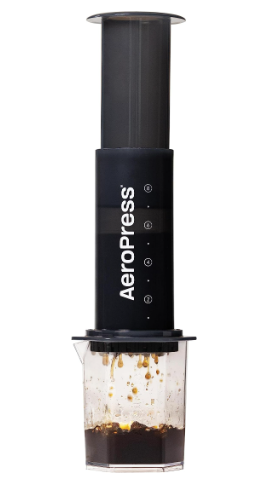Is Coffee Actually Good for You? What the Research Says
METHODS
9/23/20257 min read
The Nutritional Profile of Coffee
Coffee is not merely a beverage; it is a rich source of various nutrients that can contribute positively to health when consumed in moderation. One of the most significant aspects of coffee is its high antioxidant content, which includes compounds such as chlorogenic acid and quinines. Antioxidants play a crucial role in combating oxidative stress in the body, potentially reducing the risk of chronic diseases.
In addition to antioxidants, coffee contains several vital vitamins and minerals. Among these, B vitamins, including B2 (riboflavin), B3 (niacin), and B5 (pantothenic acid), are particularly noteworthy. These B vitamins are essential for converting food into energy, supporting brain health, and facilitating the proper functioning of the nervous system. Furthermore, coffee provides small quantities of minerals, such as potassium and magnesium, which are important for various biochemical processes in the body.
One of the appealing attributes of coffee is its low-calorie nature, especially when consumed black. A typical cup of black coffee contains only about two calories, making it an excellent choice for individuals seeking to manage their weight while enjoying a flavorful beverage. However, the caloric content can significantly increase with the addition of sugar, cream, or flavored syrups. Therefore, it is essential for consumers to be mindful of how they prepare their coffee.
The method of brewing also influences coffee's nutritional profile. For instance, espresso has a higher concentration of antioxidants compared to drip coffee due to its shorter brewing time, while cold brew methods may yield a smoother flavor by reducing acidity levels. Ultimately, understanding these nutritional components can help individuals appreciate coffee not only as a daily ritual but also as a healthful addition to their diet when enjoyed wisely.
Health Benefits Supported by Research
Recent scientific investigations have increasingly suggested a myriad of health benefits associated with moderate coffee consumption. A substantial body of research indicates that coffee may enhance cognitive function. Studies published in respected journals have shown that caffeine, a primary component of coffee, can improve memory, attention, and reaction times. It has been postulated that these cognitive enhancements may stem from coffee's ability to stimulate the central nervous system, thereby fostering alertness and mental agility.
Moreover, coffee's potential role in mitigating the risk of neurodegenerative diseases has garnered significant attention. Notably, research has demonstrated a correlation between coffee consumption and a reduced risk of developing Parkinson's and Alzheimer's disease. Several studies indicate that coffee drinkers may experience a lower incidence of these conditions, possibly due to the presence of antioxidants and anti-inflammatory compounds found in coffee. These bioactive substances are believed to contribute to neuroprotection and may inhibit the development of neurodegenerative processes.
Beyond cognitive benefits, coffee has also been linked to favorable cardiovascular outcomes. Epidemiological studies suggest that moderate coffee consumption may be associated with a reduced risk of heart disease and stroke. A meta-analysis presented at various health conferences indicated that such associations are prominent among individuals who consume up to four cups per day, highlighting the potential of coffee to support heart health when consumed responsibly.
Furthermore, coffee appears to play a role in metabolic health. Evidence suggests that coffee consumption may aid in weight management and decrease the risk of type 2 diabetes. Research indicates that compounds within coffee can enhance insulin sensitivity and glucose metabolism, thereby contributing to better metabolic profiles among consumers. Collectively, these findings underscore the multifaceted health benefits associated with coffee, asserting its position as a potentially advantageous component of a balanced diet.
Potential Risks and Considerations
While coffee is often praised for its potential health benefits, it is essential to recognize the potential risks associated with its consumption. Caffeine, the primary active ingredient in coffee, can lead to an increased heart rate, making it a concern for individuals with certain cardiovascular conditions. This stimulation of the heart could exacerbate existing health issues, especially if consumed in excessive amounts.
Another significant concern is the impact of caffeine on mental health. Many individuals report feelings of heightened anxiety following coffee consumption. This effect can be particularly pronounced in those already predisposed to anxiety disorders. Excessive caffeine can also contribute to insomnia and sleep disturbances, which can cascade into a variety of health challenges. Sleep quality is imperative to overall well-being, and regular interruptions may compel individuals to reduce their coffee intake or explore alternatives.
Additionally, coffee can cause digestive issues for some people. High caffeine levels may lead to increased stomach acid, resulting in discomfort or exacerbated symptoms for those with gastroesophageal reflux disease (GERD) or similar gastrointestinal conditions. Consequently, individuals must monitor their symptoms and adjust their consumption accordingly.
Another important consideration is caffeine addiction. Regular consumers may develop a dependence on caffeine, leading to withdrawal symptoms when they cut back or abstain altogether. Increased consumption often requires more coffee, raising the risk of excessive intake and heightening potential side effects. Different individuals will respond variably to coffee based on their personal health profiles and tolerance levels, making moderation important.
Understanding these risks enables consumers to make informed decisions regarding their coffee consumption. Those with pre-existing health conditions or concerns should consult healthcare professionals to create a balanced approach that prioritizes both taste and health considerations.
Final Thoughts: A Balanced Perspective on Coffee
As we reflect on the role of coffee in a healthy diet, it is evident that this popular beverage can offer both benefits and drawbacks. Numerous studies have suggested that moderate coffee consumption may contribute positively to various health outcomes, including improved cognitive function, a lower risk of certain diseases, and enhanced athletic performance. However, it is important to understand that these potential benefits must be weighed against individual health conditions and potential risks associated with excessive consumption.
Moderation seems to be the key when it comes to enjoying coffee. The general consensus among health experts suggests that consuming three to four cups of coffee daily is generally considered safe for most adults and can be part of a balanced diet. This level of consumption is associated with the greatest benefits as outlined in the existing research. However, some individuals may experience adverse effects, such as increased heart rate, anxiety, or digestive issues, even with lower amounts, highlighting the need for personalized considerations.
Furthermore, it is essential to consult with healthcare providers regarding personal coffee consumption, particularly for those with specific health issues such as heart conditions, anxiety disorders, or pregnancy. Healthcare professionals can offer tailored advice that aligns with an individual's overall health goals and lifestyle. Beyond the context of coffee, maintaining a balanced lifestyle includes embracing other healthy habits, such as a varied and nutritious diet, regular physical activity, and proper hydration.
In conclusion, coffee can indeed be a healthy addition to one's diet if consumed in moderation and with attention to individual health considerations. The journey towards a healthy lifestyle is multifaceted, encouraging individuals to consider a holistic approach that prioritizes overall well-being while allowing for occasional indulgence in their daily rituals.
One of our most eco-friendly coffee makers..


AeroPressXL Coffee press
Click 'Shop Now!' to find on Amazon now....
Specs
The AeroPress XL is an upsized version of the original AeroPress coffee maker, designed to brew larger volumes while maintaining the core benefits of its unique immersion and pressure-based method. It holds about 20 fluid ounces (around 590 ml), allowing users to make up to two full cups of coffee or several espresso-style shots in one press. The device is made from BPA-free plastic, and it comes with a shatterproof Tritan carafe designed to handle the increased brew size. Its dimensions are roughly 4 inches in diameter by 10 inches tall, making it significantly larger than the standard model. The brewing method combines immersion, aeration, and micro-filtration, delivering a smooth, low-acidity cup of coffee. The kit includes 100 XL-specific micro filters, a scoop, stirrer, and the custom carafe.
Pros and Cons
Pros
One of the biggest advantages of the AeroPress XL is its increased capacity. If you’re someone who often makes coffee for two or more people, or simply wants more in one go, this model saves time and effort compared to repeating brews with the original. It still delivers a clean, rich cup thanks to its fine paper filters and pressure-based brewing. The unit is lightweight yet durable, making it suitable for home or travel, and cleaning is straightforward—grounds eject cleanly and parts rinse off easily. You also retain control over brew time, temperature, and grind size, which makes it great for dialing in your personal taste preferences.
Cons
However, its larger size does come with drawbacks. The brewer is taller and bulkier, which may not suit small kitchens or tight travel setups. It also uses different filters than the original AeroPress, meaning you can’t interchange accessories or use third-party options built for the standard model. Handling the increased hot water volume requires more care, especially when pressing, as the unit can become top-heavy and harder to stabilize. The included carafe, while functional, lacks a handle, making pouring less ergonomic, particularly when it's full. Also, the overall design may feel less portable than what AeroPress fans are used to.
Our Review
The AeroPress XL successfully brings the beloved brewing qualities of the original to a larger format, and it does so without compromising on taste. We found the coffee produced to be consistently smooth, aromatic, and free of the bitterness or grit you might get with French press or other manual methods. The extra capacity makes it ideal for households, office use, or anyone who wants more than just a single cup. It still brews fast, with most cups done in under two minutes, and the cleanup remains one of the easiest among manual brewers.
That said, the bigger size changes the user experience slightly. It takes more counter space, the plunger needs firmer pressure to push through more liquid, and you have to be a bit more cautious with setup—especially if you use the inverted method. The separate filter size also means you'll need to plan for ongoing supply. And while the carafe is a nice inclusion, its lack of handle makes pouring awkward, especially with hot liquids.
In short, the AeroPress XL is a great step up for regular AeroPress users who want more coffee per press without sacrificing the quality and convenience they've come to expect. But for solo coffee drinkers or frequent travelers, the original model or AeroPress Go may still be the better fit.
Disclosure: This post contains affiliate links. If you click and make a purchase, I may earn a small commission at no extra cost to you.


